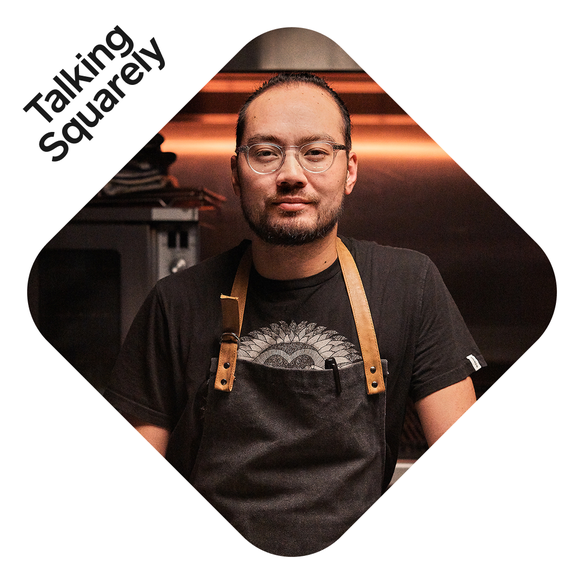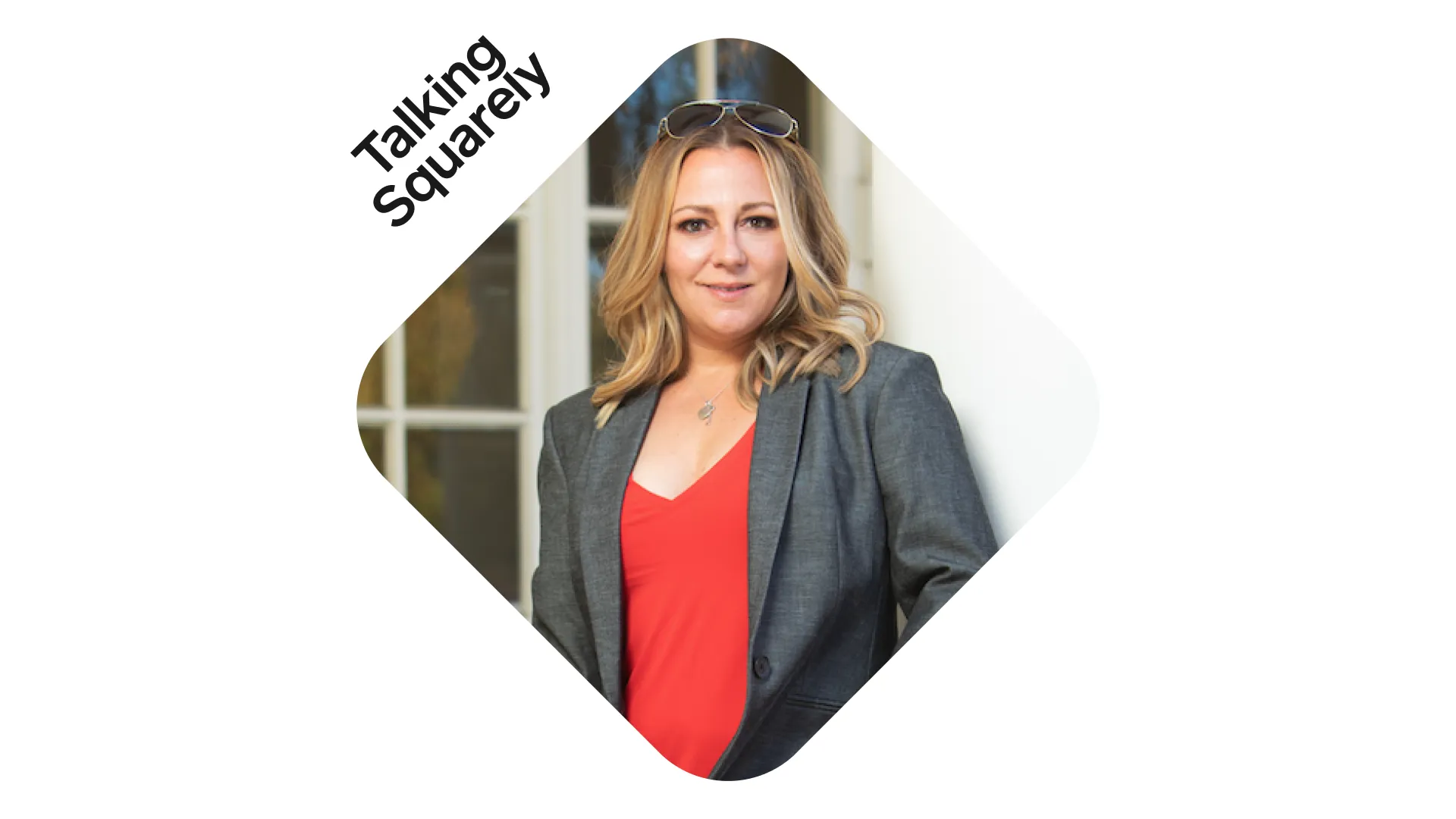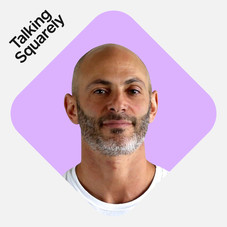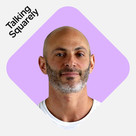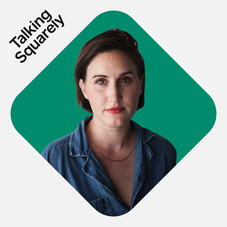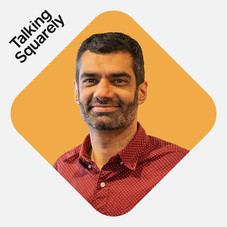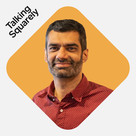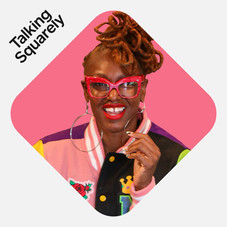Table of contents
The pandemic continues to take an emotional and mental toll on both business owners and their employees. This could contribute to why the Square 2022 Future of Commerce report found that 71% of restaurants now experience a labor shortage and that 31% of retailers worry about attracting and retaining staff.
How do business owners support their employees though these difficult times, take care of themselves, and run their businesses?
For Tony Vu, owner of MaMang restaurant in Flint, Michigan, previous crises in Flint prepared him to take on this challenge and put his employees first.
“For me as a leader, being able to help guide all my employees and everything through it all — especially with their uncertainty and everything — I think that allowed me to really step outside of myself and any personal issues that I might have been facing and just deal with it with a solution-based approach and with a really healthy dose of optimism, which I’ve developed as a survival skill,” Vu says.
In episode 14 of Talking Squarely, we speak to three business owners who get candid about how their relationship to their employees has changed since the onset of the pandemic, what steps they’ve taken to show support for employees’ mental health and well-being, and how they’ve faced their own personal struggles.
Krista Abel, owner of Dream Home Images, a luxury real estate marketing company in Santa Cruz, California, has found ways to help her employees through wildfire devastation and power outages. She even helped an employee get a new car.
Read more about Krista’s story
“We work with the most phenomenal team,” she says. “And without them, I wouldn’t have a company, so I owe them everything or whatever I can do to support them to be better.”
Not all businesses have a full team to support, and that has had its own challenges during the pandemic. Avani Modi Sarkar, who co-owns Modi Toys, a direct-to-consumer Hindu-inspired children’s toy company, is one of two full-time employees at the company. A mom of three, Sarkar struggled with the balancing act of being there for her children and taking care of her business, all of which was much more difficult due to the pandemic.
“I think the biggest challenge for me is that the two aspects of my life, motherhood and entrepreneurship, they ask such different things of me. Motherhood really forces you to slow down because you’re not really in control of so many things. Your day is not your own anymore. Your time is not your own. Whereas entrepreneurship really keeps asking you, ‘Are you doing enough? Should you be doing more? What more could you be doing?’ And I honestly feel like I’m in this push and pull constantly.”
Listen to the full episode to hear more about how these business owners found balance and the innovative strategies they implemented to support their employees better.
Have questions or comments? Discuss this episode of Talking Squarely on the Seller Community.
Episode 14 Talking Squarely guests
- Krista Abel, owner, Dream Home Images, a luxury real estate marketing firm in Santa Cruz, California
- Avani Modi Sarkar, co-owner of Modi Toys, a direct-to-consumer brand that makes toys inspired by Hindu culture, based in New Jersey
- Tony Vu, owner of MaMang, a Vietnamese restaurant in Flint, Michigan
More resources
Read: Tips and Tools to Retain Your Top Employees
Read: 5 Ways To Show Your Employees That You’re Invested in Them
Read: Successful Entrepreneurs Share 4 Tips for Scaling Your Business
Try: In-Store and Curbside Pickup With Websites
Listen to more Talking Squarely episodes
Episode 14 full transcript
Nelson (host):
Hi, I’m Nelson Murray, and this is Talking Squarely. In this special Talking Squarely miniseries, we bring together independent business owners to have frank discussions and share their perspectives on some of the most pressing issues impacting their lives and livelihoods. Today the topic of our show is a recognition of the fact that it’s been almost two full years of life with COVID-19. And we’re here to explore the renewed focus on mental health, both for business owners and their employees.
Krista:
Not only did we face the pandemic, but also the CZU fires. And after the evacuation order was lifted, we learned that our newest CEO, his home was destroyed in the fires. He had a very large family, and not only did it deeply affect our CEO, but also our entire community. A large amount of our community was gone and just disappeared within these fires. On top of this — before, during, and after — our business was experiencing the largest growth spurt that our company’s seen.
Nelson (host):
That’s Krista Abel, owner of Dream Home Images, a luxury real estate company based in Santa Cruz, California.
Krista:
It really was a wake up call to us. And so we decided that we wanted everybody on our team to have better work-life balance moving forward and really value their time off.
Nelson (host):
Krista says that the pandemic and wildfires helped her reset as a business owner, finding ways to help her employees prioritize and cut down on tasks so they could spend more time with their families. For Avani Modi Sarkar, the last two years have challenged her both as a mother and an entrepreneur. She co-owns Modi Toys, a small business specializing in children’s toys, books, and kits inspired by her Indian heritage and culture.
Avani:
I would say I’ve had the hardest time adjusting probably in the past year. My life has changed, both personally and professionally-speaking, pretty dramatically. The day New Jersey went into lockdown in March, I delivered my second baby. And I was, thankfully, on maternity leave at the time, from my then corporate job. But I was then furloughed during maternity leave. And then, I was subsequently laid off. And basically I never went back to work after my maternity leave.
But basically I was at a crossroad. I decided that it’s now or never. And I decided to pursue Modi Toys full time instead of going back to corporate America. In January I found out I was expecting again, and I now have three kids. I think the biggest challenge for me is that the two aspects of my life, motherhood and entrepreneurship, they ask such different things of me. Motherhood really forces you to slow down because you’re not really in control of so many things. Your day is not your own anymore. Your time is not your own. And it really just forces you to slow down and relinquish control, whereas entrepreneurship really keeps asking you, “Are you doing enough? Should you be doing more? What more could you be doing?” And I honestly feel like I’m in this push and pull constantly.
Nelson (host):
Well, congratulations, first of all, on your newest little one. I’d like to ask you a bit more about that though. You’re exploring this idea, right now, of how to balance: the tension between being present and being a mother to these young children and also, frankly, meeting the needs of a business that is completely yours. And in this case, it is yours and your brother’s, is that correct?
Avani:
It is. Yeah, my brother and I co-founded Modi Toys three years ago now because we both became first-time parents to our girls. Our girls were born exactly a week apart. And as immigrants, we grew up feeling really connected to our Indian heritage, our culture. So when we became parents ourselves, we felt really clueless in how we were going to pass down the same kind of appreciation and connection that we felt, to our kids. And so, that’s where the idea for our toys emerged. And what’s really ironic is that we started this business, really, as a way to help other kids feel connected the way that so many of us grew up feeling connected to our culture, but the same business is now pulling me away from my kids. It’s really ironic how that has happened, but I feel like this business is my fourth baby, and I’m constantly trying to give them all equal attention. Luckily one doesn’t throw a tantrum, but I feel like I need to still give it love.
Nelson (host):
I’d like, now, to turn to another one of our guests. And that’s Tony Vu of MaMang, from Flint, Michigan. Tony, let’s hear your thoughts a little bit about things you’ve been struggling with, with regard to the ever-changing dynamics of the past year and how you’ve been coping with those changes, whether it’s consumer expectations, changing health guidelines, and potentially the impacts of the pandemic on the lives of your employees.
Tony:
I think coming from Flint, it mentally has prepared, at least myself personally, to take on these crises. I feel like I’m kind of battle-ready, of sorts. The biggest thing that I think guided me was my employees. For me as a leader and being able to help guide all my employees and everything through it all — especially with their uncertainty and everything — I think that allowed me to really step outside of myself and any personal issues that I might have been facing and just deal with it with a solution-based approach and with a really healthy dose of optimism, which I’ve developed as a survival skill.
I remember it being, in the very beginning, we were shut down. And so my first moves were to figure out how I could make sure my employees were okay financially. I was constantly checking in with everyone, making sure that everyone was okay and talking through this and going through it all together. And so, I think in the end, that really got us all through this and why they’re still here and why they ended up coming back. And we’re still thriving throughout it all as well.
Nelson (host):
I’m sure that all of our listeners are familiar with very unfortunate stories of horrible customer interactions between employees in the airline industry and in other parts of the service sector. I’m curious, Tony, if, given the nature of your business, you have encountered any friction, any experiences with employees that have been unfortunate, or that you’ve had to adjust your approach to running the business, to try to mitigate, whether that’s relating to mask guidance or vaccinations, things like that?
Tony:
Yeah. There was a lot of challenges. I think, more than anything, it was just the pressures: one, of coming back and being in a public space where you’re dealing with the public again, especially after observing so many safety protocols. And so there was a lot of stress involved with how we were going to serve, whether or not we were going to be safe, even down to logistical things like, “How can I procure the best masks to ensure safety for employees?” And I don’t think any of them really understood the science or anything behind any of the stuff, but even just little things that seemed to give them an edge, put them at ease, I tried to provide for them. And so that was more beginning, early on, as we started to reenter the market and open back up. Fast forward to the summer: people were just so pent up, ready to go back out and to go eat and everything. And along with that came all kinds of demands.
And so we were pretty lucky in that I’ve heard other horror stories. So for the most part, we didn’t have to experience anything that extreme. But there was some tension and just a big sense of entitlement that had come out as well. And then there was also the dealing with the reality of the fact that there’s a lot of people out there that were anti-vaccine, anti-mask. How do we even deal with this from a service aspect? And coming up with different policies on who we could serve, how to turn down people, even the fear that might come down with that as well, our hospitality and the skillset of hospitality that was placed upon my staff, it got so much more in-depth, to the point where they had to have social considerations that they never had to before.
Nelson (host):
Avani, I understand that your business is direct-to-consumer, so those dynamics are quite different than what Tony is experiencing. But I’m curious if you and Krista have similar or related reactions to trying to support, effectively, all of the rest of your staff and their mental health and sense of well-being as well at this time, knowing that for each of you, it’s, in many cases, other family members.
Avani:
We do require our employees to come into the office, so we just wanted to make sure that all possible precautions were being taken so we can continue operating as before.
Nelson (host):
Krista, how about you? How are you continuing to support your employees?
Krista:
We created an emergency fund to aid anybody that needs assistance and ensure that we always had funds available, as well as funds available to pay people if they get shut down. And through that fund, we’ve helped an employee find a new apartment when they had a bad living situation. We had one employee’s car that went out just a few weeks ago, and we were able to get them a new mode of transportation, another reliable car. And in addition to that, to support everybody here, we live in the Bay Area, so our apartments can be really tiny, and being stuck inside of one all day can be maddening. So we got a new office in downtown Santa Cruz that anybody can come to whenever they need.
In addition to that, in the Santa Cruz mountains, the power goes out all the time lately, frequently. So the new office in Santa Cruz has a generator. If your power goes out, if you need a place to hang out or to walk around, we have one for you. We work with the most phenomenal team. And without them I wouldn’t have a company, so I owe them everything or whatever I can do to support them to be better.
Nelson (host):
Tony, I want to turn back to you for a moment. What has been — especially as this has likely been months ago for you — but what was your biggest stressor as you welcomed customers back into in-person dining?
Tony:
Probably the biggest thing was our capacity to serve them. We’ve been very, very fortunate in that we actually have thrived through the pandemic. And so we’ve had struggles trying to keep up with all our different revenue streams that we created — demand that was created from it all — and also that being compounded by anticipating when customers would actually come back in. So obviously the biggest one is just employees and shortage of employees. The industry is going through such a crisis right now; the workforce is leaving in droves. And so that really started to shift us. Instead of looking at bottom lines with finances, it was bottom lines with straight up happiness, the mental health and ability of our employees to be able to keep up and not get burnt out.
And so there was a few different instances of us sitting with the leadership and saying, “What can we do to support you all?” And we really put our employees in a place where we shared our power, and they were able to chart how they wanted to work, how they wanted the company to work, so that it was a more supportive and healthy environment, and the demands could be much more easily mitigated by them. And so we end up opening only four days a week, when normally we’re open six.
Nelson (host):
It’s remarkable to me how listening, for each of you, has really played a key role in the way that you’ve adapted to this past 18 plus months. Avani, you talked about going to great lengths to make sure that there were proactive health considerations being monitored. Krista, you talked about not only the office space, but the fund that you’ve put together. And Tony, you just listed off a few, and I’m sure that there are more things that you did to actually change the actual structure of your business model to adapt to the needs of your employee base. I’m curious what role empathetic listening has played for each of you beyond that, and if that’s something that you really have had to develop even more so as a skill, as a business owner, to really sustain your business in these times. Or is that something that you think maybe would always have been a part of your approach to business? Avani, maybe we start with you.
Avani:
My brother and I, we are really the true, two full-time employees that we have. The rest of the team is comprised of either our fulfillment team or someone we have in marketing, who works remotely. But really, we are the ones who see the business day in and day out. And I think we probably have to listen to each other the most, more than others. And I think in the past year, we’ve definitely seen some tension brewing between us. So we’re still figuring this out actually, but we have to get to a point where we can better communicate our ideas to each other, because he has a very operational mindset. I have a very marketing mindset. Luckily because of that we focus on very different aspects of the business. I’m focused on customer acquisition, on product development. He’s focused more on just keeping the engine running on the back end, working with manufacturers, and so on and so forth.
But of course there are times, naturally, where we step by each other’s toes, because I’ll have input for something that he’s working on and vice versa. And it’s become a little bit more challenging in working together, I think, because the business has grown so much from where it was three years ago. We’ve now, like, come to the realization that, “Okay, we’re at the grownups table. We’re not at the kids table anymore.” We really need to put some structure in place. We can’t keep having inventory management issues. We can’t keep selling out and telling our customers, “Sorry, out of stock. Check back in a few months.” Especially right now with shipping, we are trying to figure out exactly what that right communication style needs to be.
Nelson (host):
Krista, I’m curious for your thoughts on this notion of whether, for you, empathetic listening has really had to become a superpower of yours. And if so, how do you plan to maintain that as you continue to scale your business? Is that scalable, that level of real, intimate reception to the needs of your employees?
Krista:
Oh, absolutely. The biggest stressor I’ve always ran into is how to scale appropriately. And with that, that means that I have actually slowed down the growing to ensure that we have the proper training, proper time to dedicate to our employees. One thing that I have put into place is actually cutting my personal schedule in order to allow for things like onsite training, onsite focusing, one-on-one time with them. And because I feel like this company is like a piece of me, it’s my heart, it is my brand, I will always have a one-on-one connection with every single person who comes to work with us. It’s so important to me to know that they are taken care of and to listen to what they need. Even if it’s something that’s personal and not work-related, it’s still going to affect how they do their work.
Krista:
So, it’s a commitment that we have. And like I said, we made big changes throughout the pandemic. When I realized Krista, you are a mother, you’re a wife, and you are working 60, 70 hours a week. You need to change that, and you need to really practice what you preach. And so with that, I took a vacation with my kid. It was the first time. And it was the most wonderful thing in the world. And an art and a skill, that I’ve had to learn, is delegation and really stating what I need from people. And if I can communicate that clearly, they come through for me. And I just think that I am so lucky to be surrounded by this amazing group of individuals with their own unique talents. I’m the lucky one. So I’ll never lose that connection.
Nelson (host):
Tony, what do you think? Will you continue to have those kinds of meetings, like you described, with your entire team, to solicit ideas on ways to make the business more hospitable to the needs of your employees?
Tony:
It really is about the employees. And right from the get-go, with my business partner, we decided that we wanted to change what we saw and knew as a toxic industry. And we knew that one of the major things that we had to do was put our employees first. And so, we spend time with each and every employee at every level. We make time to sit down with them, hear them out. And just like Krista was saying, that it’s not even just about work; it’s just getting to know them, getting to know what’s going on in their lives; just establishing that connection to let them know that they are seen. You say it’s “my” business, but it’s not. I’m an owner, it’s my food. But at the end of the day, it’s our business.
Nelson (host):
Before we wrap up, I wanted to give each of you some space to think aloud about things that could be better. Are there changes that could be made, either in your business or perhaps locally in your communities, to contribute to a healthier working and shopping or commerce environment? And Tony, maybe we’ll start with you.
Tony:
I think the biggest issue in my industry and where we’re at is just access to housing. Affordable access to housing. Everybody wants food service, all these hospitality-based experiences, but even with a $15 an hour wage, it’s just not enough.
Nelson (host):
Avani, what about you? You are obviously in a completely different industry than Tony. What are some things on your mind about room for improvement in your space, or maybe even just in the context of your business?
Avani:
Well, in the context of just shopping, making it easier for people. One thing that I personally have really come to appreciate, especially now, as I try to get out of the house with a newborn or just all three of the kids, is being able to have curbside pickup available at pretty much every retail, whether it’s a small business or a big box store. It’s something that I’ve found to be really, really beneficial because it saves me the trouble of having to lug the car seat and the stroller or going to the store, just to pick up some medicine, for example. So, if I can just pull up and send a text, “Hey, I’m here” and make this the norm going forward, whether or not we’re in a pandemic, I think that would be really great.
Nelson (host):
And Krista, what about you? What are some things that are on your mind, about ways to improve your industry or your specific business?
Krista:
It’s unreasonable, in the Bay Area, to expect somebody to make $15 an hour and then to truly afford and perform because they can’t focus on their basic needs in addition to their rent, like food or their car, or whatever it is. I think times are really changing. And I really do think that, in the coming years, we’re going to see a lot more bosses and business owners truly connect and really embrace the livable wage and the marginalized workers. You give me somebody who has a great attitude, and they are going to perform their heart out.
Nelson (host):
This has been a wonderful way to wrap up this conversation. I am so incredibly grateful for the three of your really generous minds and perspectives on life as independent business owners right now and balancing mental health of, not just yourselves, but your employees.
A special thanks to Krista, Avani, and Tony for sharing their unique perspectives and vulnerabilities regarding mental health and the COVID-19 pandemic. You can learn more about Krista’s company, Dream Home Images, on their website, dreamhomeimages.com and on Instagram and Facebook at dreamhomeimage. You can find Avani’s business, Modi Toys, online at Moditoys.com. That’s M-O-D-I toys.com and on Instagram and Facebook at moditoys. And visit Tony’s restaurant, MaMang, in Flint. And find them on Instagram and Facebook at MaMangFlint. That’s M-A-M-A-N-G Flint. You’ve been listening to Talking Squarely, a Square production. This episode was produced by Vidya Rao and Clara Shannon. Our music was composed by Jordan Wallace with sound recording by Sorrentino Media and DR Baker. I’m Nelson Murray. Thanks for listening.
![]()

